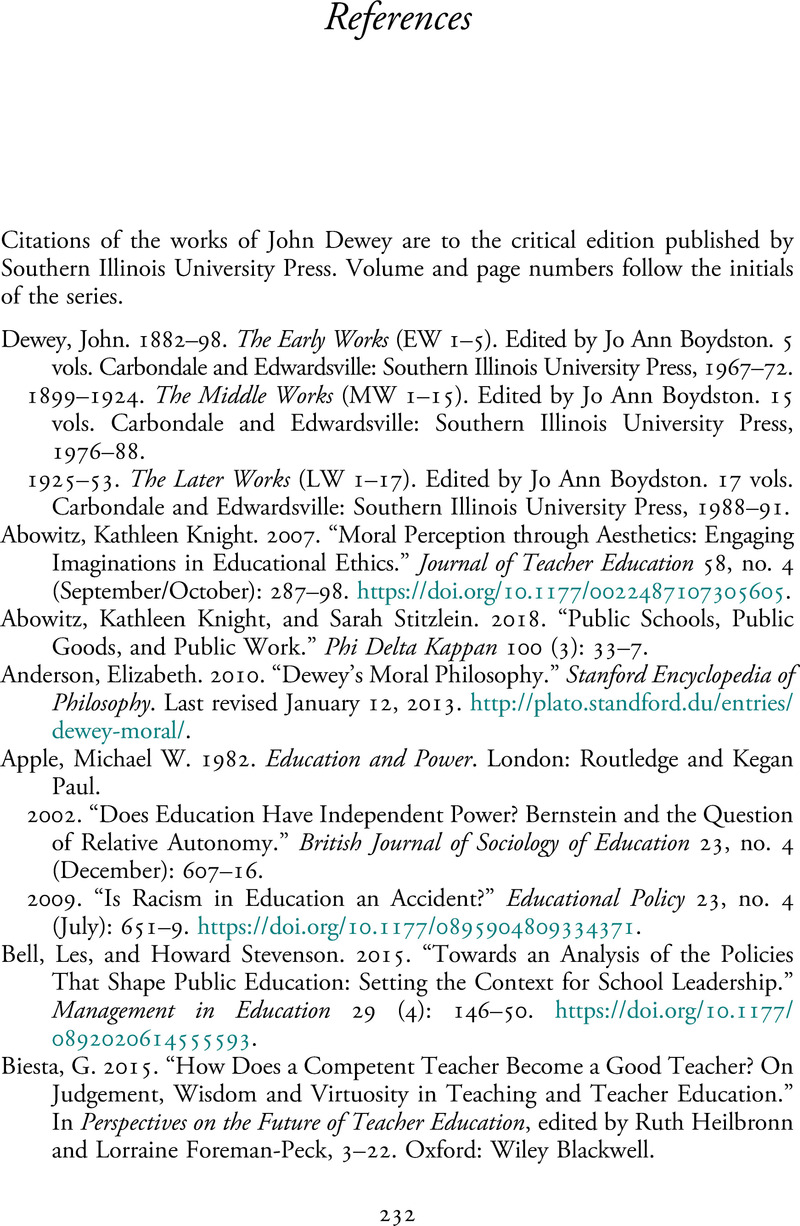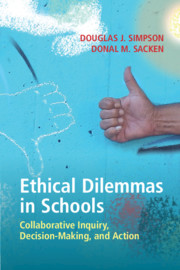Book contents
- Ethical Dilemmas in Schools
- Ethical Dilemmas in Schools
- Copyright page
- Contents
- Figures
- Foreword
- Preface
- Acknowledgments
- Chapter 1 What Can Educators Expect from Ethics?
- Chapter 2 What Does Sympathy or Empathy Have to Do with Ethics?
- Chapter 3 How Are Ethical Principles Useful?
- Chapter 4 What Does Regard for People Imply?
- Chapter 5 What Is a Problematic Ethical Situation?
- Chapter 6 What Are the Qualities of an Ethical Educator?
- Chapter 7 What Are the Characteristics of a Good School?
- Epilogue
- Appendix An Interview with Maria
- References
- Index
- References
References
Published online by Cambridge University Press: 18 December 2020
- Ethical Dilemmas in Schools
- Ethical Dilemmas in Schools
- Copyright page
- Contents
- Figures
- Foreword
- Preface
- Acknowledgments
- Chapter 1 What Can Educators Expect from Ethics?
- Chapter 2 What Does Sympathy or Empathy Have to Do with Ethics?
- Chapter 3 How Are Ethical Principles Useful?
- Chapter 4 What Does Regard for People Imply?
- Chapter 5 What Is a Problematic Ethical Situation?
- Chapter 6 What Are the Qualities of an Ethical Educator?
- Chapter 7 What Are the Characteristics of a Good School?
- Epilogue
- Appendix An Interview with Maria
- References
- Index
- References
Summary

- Type
- Chapter
- Information
- Ethical Dilemmas in SchoolsCollaborative Inquiry, Decision-Making, and Action, pp. 232 - 240Publisher: Cambridge University PressPrint publication year: 2020



